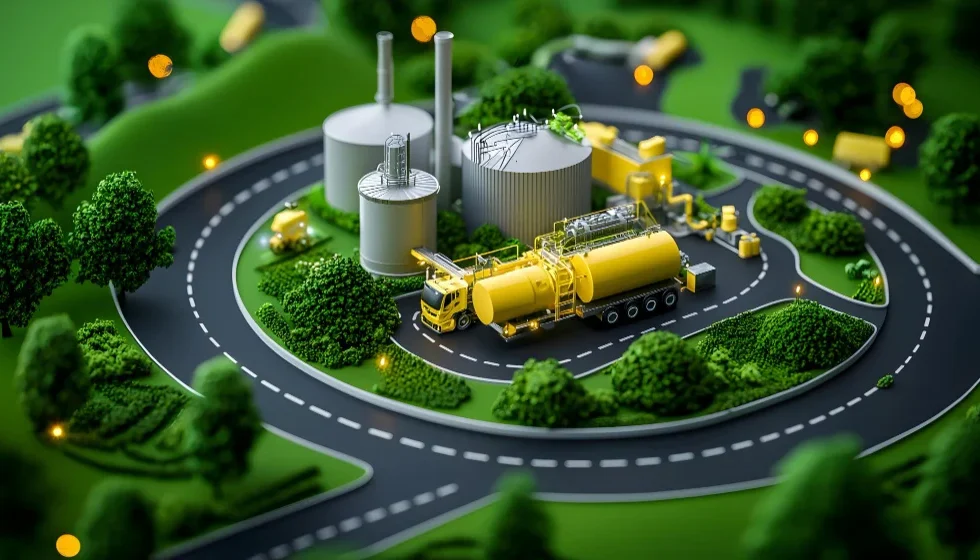As the world faces mounting environmental challenges and the pressing need to reduce carbon emissions, ethanol has emerged as a key player in the global shift toward renewable energy. This renewable biofuel, derived from plant materials, offers a promising alternative to fossil fuels and plays an essential role in the transition to a more sustainable and low-carbon future. In this blog, we explore how ethanol is contributing to sustainability, its potential to drive global energy transformation, and the future of biofuels in creating a cleaner, greener world.
1. What Makes Ethanol Sustainable?
Ethanol is considered a sustainable fuel because it is produced from renewable resources, such as corn, sugarcane, and other biomass materials, and it can be replenished through agriculture. Unlike fossil fuels, which take millions of years to form and release large amounts of carbon when burned, ethanol has a much lower carbon footprint.
- Renewable Feedstocks: Ethanol is derived from crops that can be grown annually, such as corn in the United States or sugarcane in Brazil. These renewable resources can be harvested repeatedly, ensuring a steady supply of biofuel without depleting the planet’s natural resources.
- Carbon Neutrality: One of the key advantages of ethanol is that it is considered a carbon-neutral fuel. During its production process, the plants used to produce ethanol absorb carbon dioxide (CO2) from the atmosphere through photosynthesis. When ethanol is burned, it releases this absorbed CO2 back into the atmosphere, resulting in no net increase in greenhouse gas emissions.
- Decreased Reliance on Fossil Fuels: Ethanol blends reduce the amount of petroleum-based gasoline needed to fuel vehicles, lowering the overall consumption of non-renewable fossil fuels. By replacing a portion of gasoline with ethanol, countries can reduce their dependency on oil, particularly imported oil, which has significant environmental and geopolitical implications.
2. Lower Greenhouse Gas Emissions
One of ethanol’s most important environmental benefits is its potential to significantly reduce greenhouse gas (GHG) emissions. As the world strives to meet ambitious climate goals, such as those outlined in the Paris Agreement, ethanol offers a viable solution for cutting emissions, particularly in the transportation sector, which is one of the largest sources of GHG emissions.
- Reduced Lifecycle Emissions: When compared to gasoline, ethanol can reduce greenhouse gas emissions by up to 43%, according to the U.S. Department of Energy. This reduction is measured over the entire lifecycle of ethanol, from crop growth to fuel production and combustion.
- Cleaner Combustion: Ethanol burns cleaner than gasoline, releasing fewer harmful pollutants such as carbon monoxide (CO) and particulate matter (PM). This helps improve air quality, especially in urban areas where vehicle emissions contribute to smog and respiratory health problems.
- Blending with Gasoline: Ethanol is typically blended with gasoline to create fuels like E10 (10% ethanol, 90% gasoline) or E85 (85% ethanol, 15% gasoline). These blends help reduce the overall carbon intensity of fuel without requiring major modifications to existing vehicles or infrastructure.
As the demand for low-carbon transportation grows, ethanol is poised to play an increasingly important role in reducing emissions and helping nations achieve their climate goals.
3. Supporting Sustainable Agriculture
Ethanol production is closely tied to agriculture, and its rise has spurred new developments in sustainable farming practices. As farmers produce crops for biofuel, they are adopting more environmentally friendly methods to ensure the long-term viability of their land and resources.
- Crop Rotation and Soil Health: Many of the crops used for ethanol production, such as corn, can be grown in rotation with other crops, which helps maintain soil fertility and prevent depletion. This practice ensures that the soil remains healthy and productive for future generations of crops, reducing the need for chemical fertilizers.
- Sustainable Feedstocks: As technology advances, ethanol is increasingly being produced from second-generation biofuels, which are made from non-food feedstocks such as agricultural residues, grasses, and wood chips. These advanced biofuels reduce the competition between food and fuel production, making ethanol even more sustainable.
- Reduced Pesticide and Fertilizer Use: The adoption of precision agriculture techniques, which use data analytics and advanced technology to optimize crop production, is helping farmers reduce their reliance on pesticides and fertilizers. This, in turn, minimizes the environmental impact of ethanol feedstock production.
By supporting sustainable agricultural practices, ethanol production helps protect ecosystems and ensure the long-term health of farmland, contributing to a more resilient and sustainable food and energy system.
Conclusion: Ethanol’s Critical Role in a Sustainable Future
Ethanol is playing a vital role in the transition to a more sustainable, low-carbon future. As a renewable biofuel, ethanol offers numerous environmental benefits, including reduced greenhouse gas emissions, cleaner air, and decreased reliance on fossil fuels. Its ability to support sustainable agriculture, drive rural economic development, and promote innovation in biofuel technology positions ethanol as a key player in the global energy transformation.
Looking ahead, the development of advanced biofuels like cellulosic ethanol will further enhance ethanol’s role in the fight against climate change, providing even greater emission reductions and a more sustainable energy system. By investing in ethanol and other renewable energy sources, we can work toward a cleaner, greener future that benefits both people and the planet.

